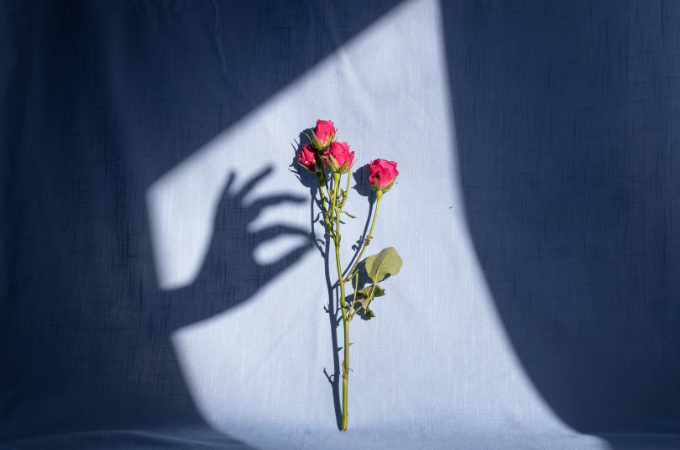
love
/lʌv/
noun
1. a feeling of strong or constant affection for a person
- attraction that includes sexual desire; the strong affection felt by people who have a romantic relationship
- a person or thing that one loves.
verb
- to hold dear/cherish
- to feel a lover’s passion, devotion, or tenderness for
When my little brother was four years old, he discovered the joy of crayons. I was six going on seven at the time and I recall exactly how I felt when I saw what he’d done to the walls of the study. Pure, unadulterated panic. Green, blue, red, yellow, black, purple, orange, this little brother of mine had scribbled what must have been pages and pages of nothing everywhere within his reach. Looking at it, I wanted to wrap him in my arms and protect him from what I knew all too well was coming his way. I knew because I had done the same thing when crayons and their endless abilities had found me three years before and I had been well and truly told off for my artistic pursuits. My mother’s, “if you want to draw, then use paper,” still rings in my ears more than fifteen years later. A six-year-old me stared at the destroyed walls and I was horrified. So, I did what any big sister worth her salt would do – I tried to make it go away. That was how my parents found me, knee-deep in soap and bleach attempting to scrub crayon scribbles off what once were pristine white walls. It is the earliest memory I have of loving a person.
I remember the first time I truly felt relief. It was in boarding school at one of the faded red phone booths. “But they’re fine, no one was hurt,” my aunt said over the phone, the words barely registering. There had been a car accident. A bad one. And my whole life, my loves, they had been in the car. Helplessness is perhaps the most unfortunate feeling in the world and in that moment that’s all I felt. The next Sunday, when my family came to visit me as they did every other Sunday, I held onto each of them a little bit tighter. Sitting there looking at them all eating and drinking and just being there, I was overwhelmed with relief.
I know my father broke a little bit inside when my grandfather died. It was not the first time I saw my father cry or be upset, but it was the first time I saw light leave his eyes. I would speak to my mother and ask about him and she would respond with the kind of distraughtness one feels when they see their lover hurting. I know my parents love each other. I have always known, of course. Theirs is a love full of friendship and the kind of peace that comes with knowing that you have found your person. But when my grandfather died and my father grieved, I think I witnessed for the first time the real binding power of love. My father still grieves, and I understand because what is grief if not love persevering? But as time has gone by and light has slowly returned to his eyes, so has peace to my mother’s being. It is as if she could not be still knowing that my father’s spirit was unsettled. It has been a fascinating thing to observe.
***
Recently, a friend of mine asked me what it meant for a person to be ‘my person’. Where ‘a person’ means someone who embodies everything I want from a romantic partner. At first, I was stuck, and I said I didn’t know because I think I’ve found bits of ‘my person’ in different people but then he said that my answer was a little sad. So, I thought again and then I said ‘my person’ would be someone who was just on the same page as me, really. In every sense of the word so, politically, and even religion-wise. I said they would also be a great conversationalist and we would have great sex. I said, there’s more but ‘my person’ would generally be someone who was there for me and got all my little quirks and idiosyncrasies. I didn’t know it at the time, but I just meant to say that ‘my person’ would be someone who made loving them easy and joyous and simple.
In the introduction of my favorite book at the moment, Love in Colour, Bolu Babalola writes that the “book is about being seen in all your iterations, in every dynamic, brightly and in colour”. Beyond the fact that this is an excellent summary of the book, I think it encapsulates love too. You see, this thing called love, it is resplendent. When we have love in our lives, everything is a little bit brighter, clearer, more pink, if you will. And not just with romantic love, familial love too, even self-love.
I think love is catching. To be loved is to know love and to know love? Well, it is to want some of it for yourself. Love is wanting to protect your little brother and the deep relief that comes with knowing your family is okay. But it is also the subtle intimacy of knowing someone is your ‘person’ – that you are theirs and they are yours and it is simple. Contrary to some opinions, I think believing in love is less about being starry-eyed and more about being hopeful; allowing yourself to embrace boom boxes under windows and handwritten love letters and shared milkshakes with two straws. At least that’s what it’s become for me. In recent years, I’ve shifted away from being a closeted romantic to embracing all that love has to offer including the hard, not-so-simple parts. Nowadays, I tell my family and friends I love them more and even though I’m still a little guarded, I think I’m more open to romantic love too.
Love is too ubiquitous and warm to be ignored and I, for one, am happy to look for more of it in my life and I wish that for everybody because after all, my loves, what is a life without love?
Photo by Jill Burrow from Pexels



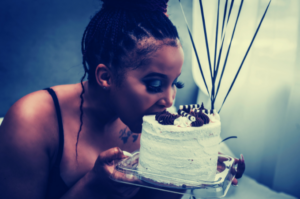
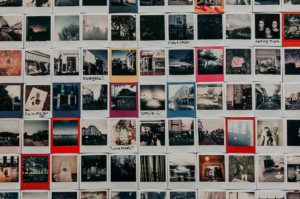

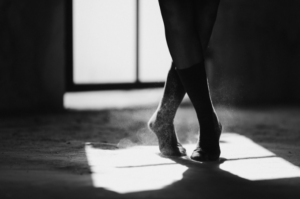
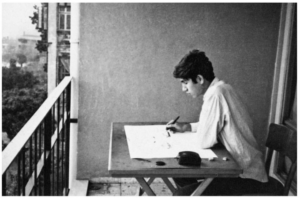
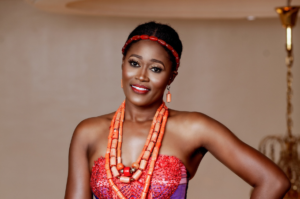

Sandra February 11, 2022 15:34
This is so beautiful Anna Maria . Love your writing so much